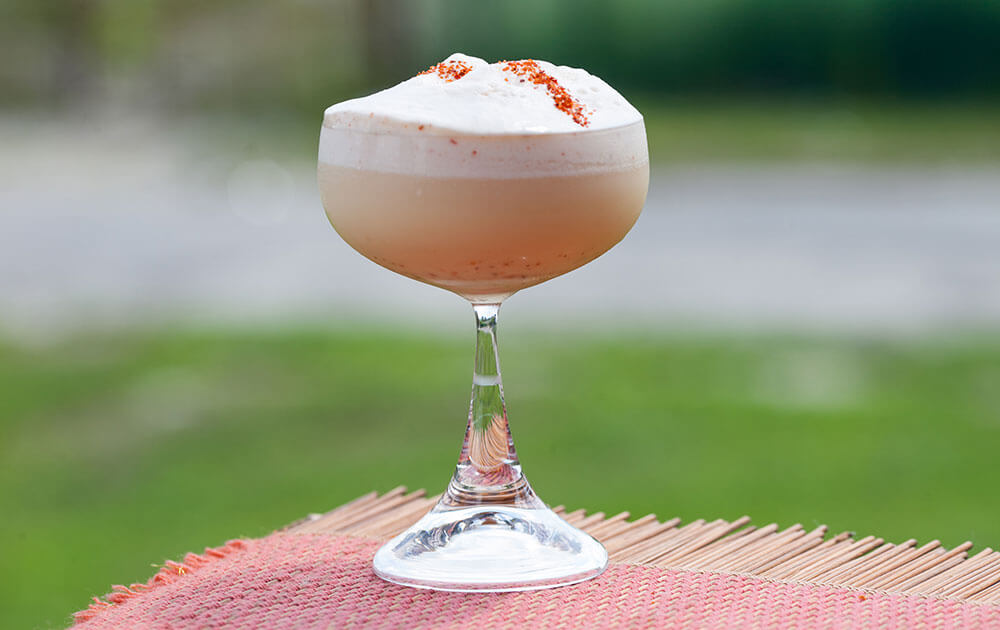
Julia Momose’s Ancho Fizz contains passion fruit, Coco Lopez cream of coconut, lime, ancho, Topo Chico mineral water, and Tajín Clásico seasoning — but no alcohol. (Sammy Faze Photography)
A “mocktail” used to mean club soda masquerading as vodka in a highball glass. Today, non-alcoholic drinks — by whatever name you call them — are being served alongside their boozier cousins in high-end bars, at establishments where no liquor is poured, and increasingly at events where — as planners are finding — not everyone wants to get buzzed.
When you consider that 30 percent of Americans don’t drink, said Jesse Hawkins, founder of Louisville-based The Mocktail Project, it only makes sense that event organizers offer more options than coffee, water, or a faux vodka soda at their networking receptions and meal events.
Hawkins stopped drinking five years ago, when he was 25. He started the nonprofit The Mocktail Project in 2017 with the goal, he said, of creating a more inclusive, stigma-free drinking culture “where cocktails and mocktails can coexist.”
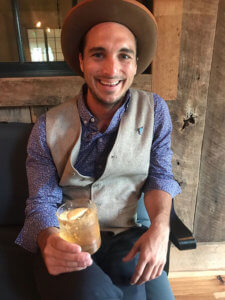
Jesse Hawkins, founder of Louisville-based The Mocktail Project, wants to see a more inclusive, stigma-free drinking culture.
“It’s absolutely not about saying we don’t want individuals to consume alcohol,” Hawkins told Convene. “I think that’s a big misconception when you look at missions or projects that talk about mocktails. It’s really finding that balance and providing spaces where everyone can feel welcome at the table, regardless if you do or you don’t imbibe.”
Hawkins said that “we’re far past the trend phase” when it comes to mocktails, and “we’re better than Shirley Temples.” Consumers are, however, used to the flavor profiles of traditional cocktails, so most alcohol-free cocktails also mimic the familiar naming conventions — with mocktails called “Cuddles on the Beach” or “Nojitos.” Recipes on The Mocktail Project site range from Botanical Bliss (with botanical tea, lemon, ginger syrup, and an edible flower garnish) to the Photo Finish (cilantro and pink peppercorn-infused pineapple juice with reverse osmosis water).
The nonprofit currently does mocktail recipe development for spirit brands, with money from that going back toward such things as recovery tools and resources — including for those in the hospitality industry — and promoting safe-ride initiatives. And The Mocktail Project works with event planners, creating drink recipes or creating custom bar service, including popup drink stations.
Tips for the Non-Tipplers
When it comes to offering alcohol-free drinks at events, Hawkins has a few suggestions:
- Be sure to include at least two to three “nice, elevated non-alcoholic options.”
- Serve all cocktails, alcohol or alcohol- free, in the same style of glassware. “Then, as you start to mingle,” Hawkins said, “it’s no longer about what’s in your hand, but it becomes about the event.”
- “If you really want to be inclusive,” he said, mocktail offerings should be served at the same bar as standard drinks, rather than at a bar off to the side. “Why,” he asked, “are we pushing individuals that consume alcohol to the left, and those who don’t consume alcohol to the right?”

Julia Momose’s spiritfree Macuá Delight contains guava, pineapple, lime, vanilla, ginger spice apple cider vinegar, and ginger beer. (Sammy Faze Photography)
Julia Momose — once named one of America’s best mixologists by Food & Wine — likes to keep things simple when serving non-alcoholic beverages at group functions. “It doesn’t have to be that crazy, insane, and different,” said Momose, who is partner, creative director, and bartender at Kumiko, an omakase-style bar in Chicago. “I think it can be something that’s thoughtfully created around what already exists in a lot of spaces.”
For example, she suggests that bartenders be instructed to set aside ingredients for alcohol-free cocktails. “If you’re batching a whole bunch of cocktails, look at the ingredients that you’re using,” Momose said, “and maybe you can reserve a little bit of that syrup and a little bit of that tea that’s being used, and putting a little bit of lemon juice — pull some of those things out and then just make a nonalcoholic base that can be easily topped off with soda and be a little bit more complex and enjoyable. So something that’s made up of parts of the cocktail that’s being served. It also will minimize waste and maybe the amount of time that needs to be spent.”
Momose, who offers several alcohol-free drinks at Kumiko, was asked to create alcohol-free drinks for the 2018 Tales of the Cocktail, a multi-day conference held each summer in New Orleans that is considered one of the alcohol industry’s biggest annual events. The Macuá Delight, Coffee Curry Chicory, and Ancho Fizz were among about a dozen of her spiritfree drinks enjoyed at the Wednesday portfolio party sponsored by distributors William Grant and Sons.
What’s most important when making non-alcoholic drinks, Momose said, is “caring enough to have something prepared” for those who don’t want alcohol. “Something that you can … serve with ease rather than something that requires … running around and trying to throw something together — I think that speaks volumes.”
Likewise, not calling attention to the non-drinkers in the group is part of Hawkins’ mission. “If you do drink or don’t drink, it doesn’t matter,” Hawkins said. “You’re [at an event] to learn, or to network.” Some of the drinks are going to contain alcohol and some of them aren’t. “And,” he said,” they’re all going to be wonderful.”
Cristi Kempf is executive editor and Curt Wagner is an associate editor at Convene.
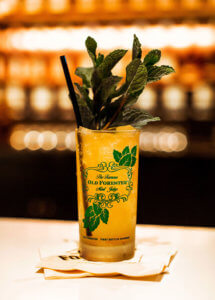
Call to the Post is the Mocktail Project’s alcohol-free version of the Mint Julep. (Krista Walker/@youvegotflair)
Whoa! A Mock Mint Julep?
This year, The Mocktail Project took the first mocktail to the Kentucky Derby, Jesse Hawkins said, in a collaboration with Old Forester’s master taster Jackie Zykan.
“We created a couple of really beautiful recipes that you could add an ounce-and-a-half of Kentucky Bourbon to and you had a traditional cocktail that consumers are used to. … Or, if you didn’t want to have Kentucky Bourbon in it, then it still was a really just beautiful recipe.” Their alcohol-free take on the Mint Julep was named Call to the Post and made with club soda, apple cider syrup, shaved ice, and mint leaves.
A mocktail collaboration with a distilling company may raise eyebrows, but it fits with The Mocktail Project’s goal of creating an environment where everyone coexists. “We understand,” Hawkins said, “that [making alcohol] is a business and the more alcohol that gets consumed, the more [money] they make. But no spirit brand wants somebody to … abuse alcohol. You really do find how much respect a spirit brand has for non-drinkers.” — Cristi Kempf
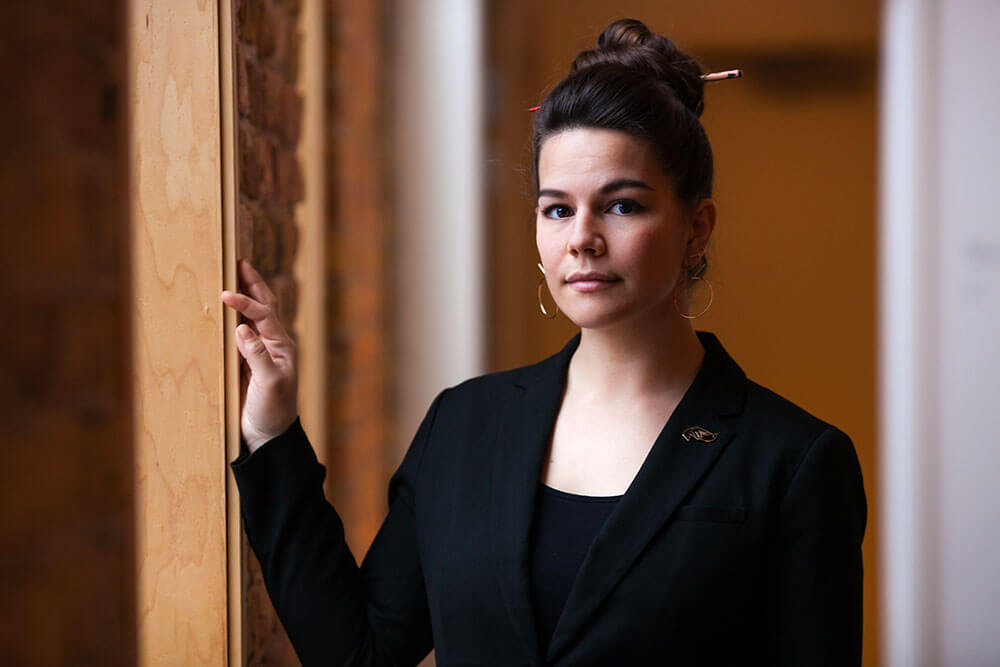
Julia Momose, who is partner, creative director, and bartender at Kumiko in Chicago, believes bars and restaurants should offer non-alcoholic drinks that are just as complex in taste as any cocktail. (Sammy Faze Photography)
A Drink by Any Other Name
Not everyone is a fan of the term “mocktail.” In fact, mixologist Julia Momose says the term kind of makes her “skin crawl.” Momose has even gone so far as to write a manifesto stating her belief that zero-alcohol drinks deserve a more positive name. Her name of choice? Spiritfree.
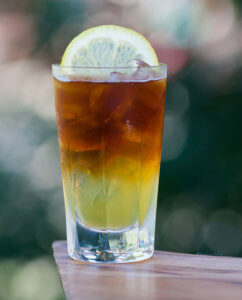
The Coffee Curry Chicory, created by Julia Momose for Tales of the Cocktail, contains Japanese curry blend, chicory root lemon, Top Note Bitter Lemon Soda, and cold brew coffee. (Sammy Faze Photography)
“‘Mocktail’ sounds like maybe something for a child’s palate, something that’s more sweet than anything else,” Momose said. “I wanted to come up with a word that took away the idea of mockery and was more a celebration of what it was — what it is, rather than a definition of what it is not. ‘Non-alcoholic’ is so scientific; it is a non-alcoholic drink, sure, but if you actually read the definition of a cocktail, a cocktail is a spirit, sugar, and other ingredients. And so, what ‘non-alcoholic’ is saying is that this is not a cocktail. And that doesn’t feel to me like an appropriate name for something.”
Momose also doesn’t abide by calling a non-alcoholic drink a “ ‘virgin cocktail’ — like it’s unsullied by the alcohol or however you want to take that,” she said. And don’t call it a soft drink in front of her — it connotes, she said, a “kind of … weakness.”
No, “spirit and free works for me,” Momose said. “‘Free’ means without, but also it’s more the connotation of being free of something — and that is an empowered choice. And I felt that gives a positive connotation, rather than negative.” Her “spiritfree” moniker was also inspired by the Japanese. In Japan, she said, “there are whole sections in grocery stores of non-alcoholic options. Santori has a non-alcoholic beer, called ‘All-Free.’ All-Free just sounds so happy and so positive and delightful.” — Curt Wagner
This F&B article is supported by Louisville Tourism, gotolouisville.com.
